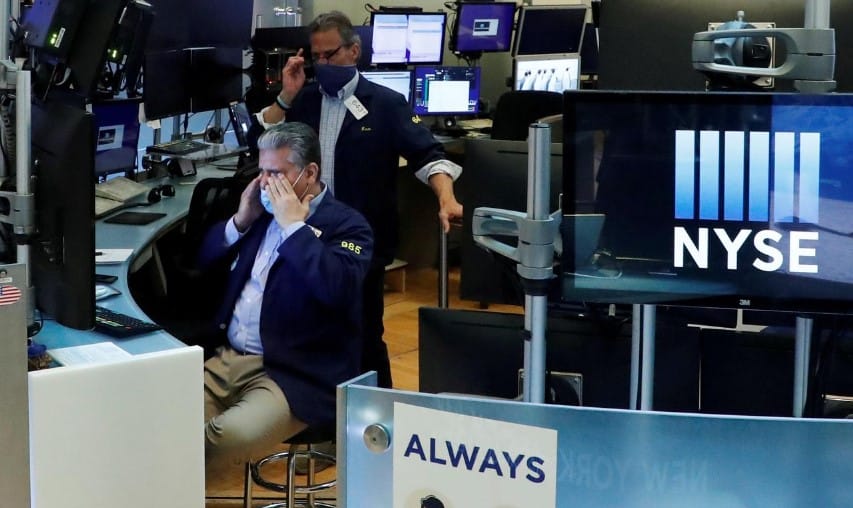
A raft of small cap stocks has soared by hundreds of millions of dollars in value in recent weeks as frenzied retail traders piled in to a blistering stocks rally.
Increased savings, stimulus checks from the government, and ultra-low interest rates due to the coronavirus pandemic have led to a flood of money into the markets from punters, leading to chaotic trades via mobile phone apps.
A little-known Chinese online real estate company’s American depositary shares (ADSs) jumped as much as 1,250% on Tuesday before closing 400% higher. The reason cited widely on social media was a part of its name, FANGDD Network (DUO.O).
“In my 20 years of experience I’ve never seen retail traders push stocks around like they’re doing right now,” said Dennis Dick, a trader with Bright Trading LLC. “When the retail rush comes into something, it can really move.”
Chasing the so-called FANG stocks (Facebook, Amazon, Netflix and Google-owner Alphabet), which powered the Nasdaq 100 .NDX above 10,000 points for the first time ever, investors also bought FANGDD at pricey levels, traders say.
At least three London-based traders said the surge was down to “Robinhood” traders – Robinhood is a popular stock trading app that greets visitors to its website with the motto “It’s Time to Do Money.”
Robinhood’s website said at noon on Wednesday 9,417 of its users owned FANGDD, up from 4,002 shortly after the market opened. By midday the stock was down around 50%. A Robinhood spokeswoman was not immediately available for comment.
“This is what you get when the markets are powering ahead and investors will latch onto anything that has a name that linking to tech stocks,” said Jawaid Afsar, a trader at Securequity Ltd.
Online brokerages, including Charles Schwab Corp (SCHW.N) and TD Ameritrade (AMTD.O), saw a surge in new accounts going back to October, when most adopted Robinhood’s commission-free trading model. New accounts and average daily trading levels spiked in March when markets were whipsawed by volatility caused by the coronavirus pandemic.
In further evidence that retail investors are giving a helping hand to the global equities rally, Refinitiv’s chief executive, David Craig, recently wrote on Twitter that the usage stats on their Eikon terminal showed the number of private investors retrieving equities data was up 124% in the final week of May vs. the 2019 average.
Pointing to U.S. savings surging to $6.2 trillion in April from $1.4 trillion in February, Goldman Sachs (GS.N) said many indicators have started to show an increase in retail investor activity.
FANGDD issued a statement on Wednesday warning investors the trading price of its ADSs “could be subject to significant volatility for various reasons that are out of the company’s control.”
FANGDD, which reported $517 million in revenue last year, now has a market capitalisation of around $3.76 billion.
The moves in FANGDD are reminiscent of recent years in which punters chased any company with “cannabis” or “blockchain” in its name. The chaotic trading in FANGDD wasn’t a one-off.
Last week, a similar euphoria was seen in bankrupt or soon-to-be-bankrupt stocks with Hertz (HTZ.N), Chesapeake (CHK.N), Whiting (WLL.N) and JC Penney rising 300% to 500% before pulling back a bit, leaving seasoned traders scratching their heads.
Data from Robintrack, a site that tracks activity on the Robinhood app, showed Hertz was topping the leaderboard for highest changes in popularity among retail traders.
In another mysterious move, Rainbow Rangers producer Genius Brands (GNUS.O) shares soared 300% between June 1 and 3 before giving up half of those gains to settle at around $4.
“It is frightening to see the complete absence of any common sense,” said a Germany-based trader who has been trading U.S. equities for close to two decades. “Las Vegas and Macau are closed, and it shows here.”
























